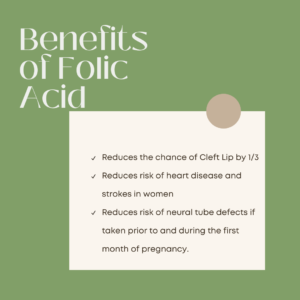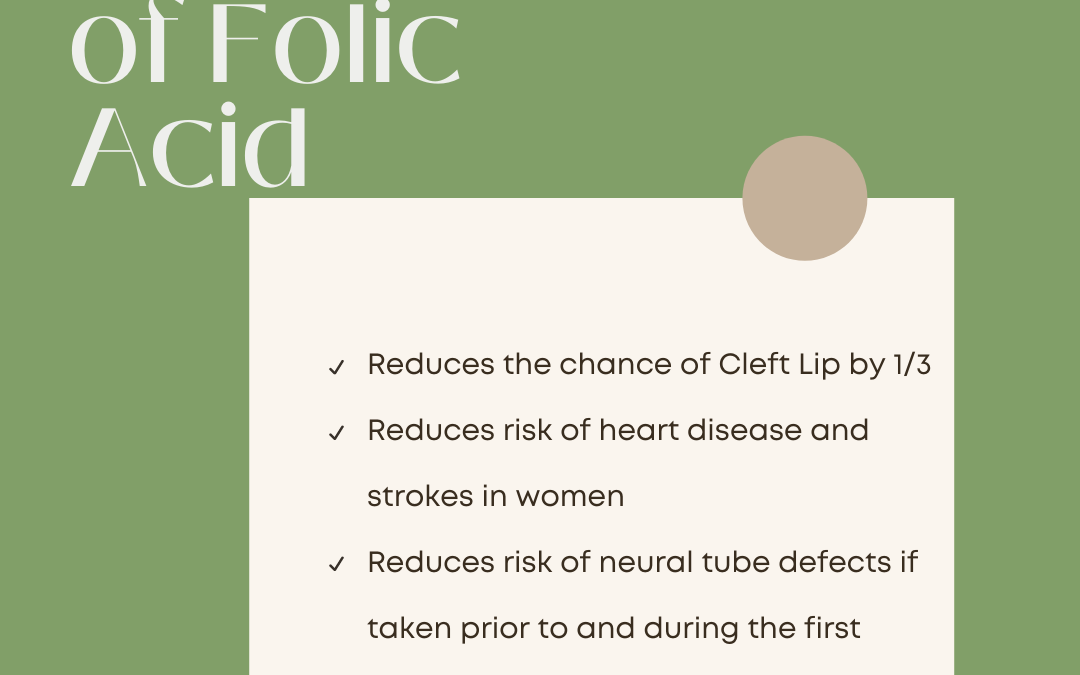What is cleft lip and palate?
Cleft lip and palate are congenital anomalies of the lip and roof of the mouth. A cleft palate leaves an opening in the roof of the mouth while a cleft lip is where there is a space between two halves of the upper lip. A cleft lip and palate is a birth defect that can be corrected with surgery. The condition can cause difficulty breathing and eating, as well as self-esteem issues due to social stigma associated with looking different. Individuals with a cleft lip and/or palate may also have dental and speech issues.
Cleft lip and palate is one of the most common birth defects, occurring in nearly 1 in 600 live births.
What does folic acid do?
Folic acid is a water-soluble B vitamin that is involved in DNA synthesis and cell division, as such it’s critical for the production of healthy red blood cells and for preventing neural tube defects. It is found in dark-green leafy vegetables, brown rice, whole wheat breads, and fruit.
Woman who are pregnant or planning to become pregnant are often encouraged to take folic acid supplements, which decrease the chance of a baby being born with a cleft lip and palate.

Folic acid also reduces the risk of heart disease and strokes in women.
How can folic acid help prevent cleft lip and palate?
Folic acid is an essential nutrient that helps to break down and repair DNA. It helps form the baby’s nerve cells and other cells in their bodies, thereby preventing major birth defects, including cleft lip and palate.
What are some common misconceptions about cleft lip and palate?
- It’s a cosmetic condition. In fact, a person with a cleft lip or palate can have issues with eating, breathing, and speech development.
- Children with a cleft are not as smart as their peers. This myth is often associated with clefts due to speech issues children may have. However, there is no evidence that children with a cleft are any more or less intelligent than their peers.
- Clefts are preventable. While their are some known associations that increase the likelihood of a cleft, there is no specific actions a woman can take to guarantee their child will not have a cleft.
Conclusion:
Folic acid has been proven to help reduce the incidence of cleft lip and palate in infants. I recommend pregnant women or women who are considering becoming pregnant to discuss taking a folic acid supplements with the doctor.

